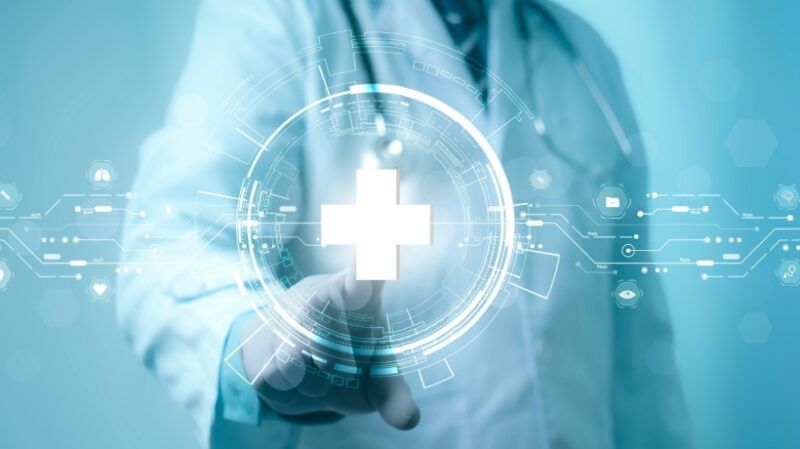

Future-Ready Healthcare Workforce
In the fast-evolving healthcare industry, continuous learning is vital to keep pace with advancements in medical knowledge, technology, and patient care practices. Traditional training methods often fall short, but eLearning solutions offer a transformative approach. A robust Learning Management System (LMS) can provide healthcare professionals with the essential training they need on HIPAA, patient care, and emerging technologies, preparing them to meet future challenges.
Challenges In Healthcare Training
Healthcare organizations face significant challenges in closing skills gaps due to evolving patient needs, technological advancements, and regulatory changes:
- Complex patient needs
As patient conditions become more complex, healthcare professionals must expand their knowledge and skills. - Technological advancements
The rise of Artificial Intelligence (AI), robotics, and other technologies requires continuous upskilling. - Regulatory updates
Frequent updates to healthcare regulations demand ongoing education to ensure compliance.
An effective LMS can bridge these gaps by offering healthcare professionals the tools they need to stay current, adapt quickly, and provide superior patient care.
Benefits Of eLearning In Healthcare
eLearning provides numerous advantages for both healthcare professionals and their organizations:
For Healthcare Professionals
- Enhanced knowledge retention
Interactive modules, simulations, and multimedia improve engagement and understanding. - Flexibility
Professionals can access training anytime, anywhere, balancing learning with their schedules. - Self-paced learning
Learners can progress at their own pace, revisiting complex concepts as needed. - Personalized learning
Courses tailored to specific roles ensure targeted training that meets individual needs.
For Healthcare Organizations
- Cost efficiency
eLearning reduces expenses associated with traditional training methods. - Risk reduction
Consistent delivery of compliance training mitigates risks and ensures adherence to regulations. - Scalability
eLearning easily scales to accommodate large, geographically dispersed teams. - Data-driven insights
Advanced LMS platforms provide analytics on learner progress, helping refine training programs.
Key Training Topics For eLearning For A Future-Ready Workforce
Healthcare organizations can significantly benefit from converting key training programs into eLearning modules, such as:
- Compliance training
Covering HIPAA, patient privacy, infection control, and workplace safety. - Onboarding
Introducing new hires to organizational policies and procedures. - Soft skills development
Enhancing communication, empathy, conflict resolution, and teamwork. - Clinical skills training
Improving competencies in medical procedures, terminology, and specialized equipment. - Product training
Keeping professionals informed about new medical devices and health information technology. - Diversity, equity, and inclusion (DEI)
Promoting a culture of inclusivity and understanding of diverse patient populations.
Strategies For Effective eLearning
To maximize the impact of eLearning in healthcare, consider these strategies:
- Video-based learning
Use video demonstrations and patient scenarios for engaging experiences. - Scenario-based learning
Interactive simulations that foster critical thinking and decision-making skills. - Microlearning
Short, focused modules that fit into busy schedules, enhancing retention. - Blended learning
Combining eLearning with traditional methods to cater to diverse learning preferences. - Virtual Reality (VR)
Offering hands-on training in a safe environment, refining skills without risk.
Sustaining Continuous Learning
eLearning is a long-term strategy for skill development. To maintain momentum:
- Regular updates
Continuously review and update content to reflect the latest practices. - Feedback loops
Collect and analyze learner feedback to refine training programs. - Recognition
Reward professionals who actively participate in eLearning, promoting a culture of lifelong learning.
Conclusion
eLearning is essential for developing a future-ready healthcare workforce. By investing in a comprehensive LMS, healthcare organizations can deliver impactful, cost-effective training that empowers professionals to stay current, adaptable, and skilled. Whether it’s HIPAA training or developing clinical skills, eLearning ensures that healthcare professionals are prepared to meet the challenges of the twenty-first century.
Editor’s Note: Check out our directory to find, choose, and compare the eLearning Industry’s Top LMS Software.
Originally published at www.maplelms.com.